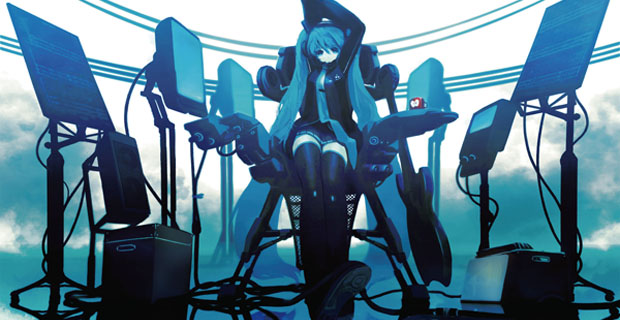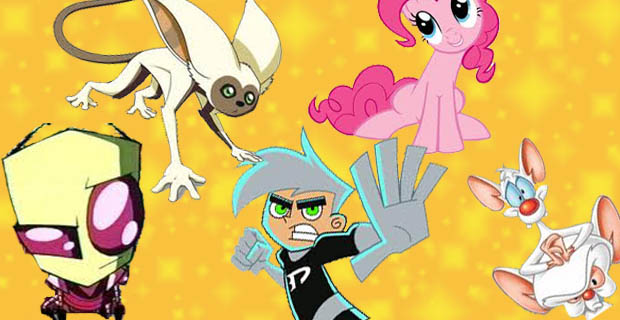This is the first chapter to an ebook I am planning on publishing. If you like my writing, please download my first ebook: Peter Pays Tribute. You can get it free with the following coupon code: YP65T
Zelda could see it a few agonizing steps in front of her. Her new life was waiting for her. Of course, she had to crane her head to see around the fat fan-boy blocking her view, but it was worth it to catch a glimpse of that all powerful, all new hunk of metal.
“So, like, what if the police catch us?” Tiffany asked, standing behind her.
They would be standing side-by-side, but unfortunately the crowd moderators were total Nazis. You had to stand single-file in the line. You could not leave the line. There would be no pushing, shoving or jostling while waiting in the line.
“Look, we’re not the only teenagers out this late. That whole city-curfew thing is mostly a joke,” Zelda responded, refolding her bony arms.
The line moved up one. One more step towards victory. One more step towards Street Knight IV.
“All right, Tif, do you remember what I told you?”
“Umm…” Tiffany cocked her head to the side, like a collie hearing her master’s voice in the distance. She wore more mascara than a collie, and her hair was a more vibrant shade of red, but the resemblance was still striking. “The part about how to register. You’ll probably have to explain the classes again.”
Zelda let out a deep groan. Actually, it was more of a mild snarl.
“Fine. But please try to get through the registration as fast as possible. We only have until one.”
Only until one. Weeks of begging and bargaining, and one was the latest her parents would let her stay out. And then she still had to go to school the next day.
“We have all tomorrow afternoon, don’t we?” Tiffany asked, checking her cell phone. Even at the stroke of midnight , she was still getting texts.
“This is a launch party. You’re supposed to stay up all night, and the day after, and maybe the night after that if you’re really hardcore.”
Zelda was hardcore. As soon as Street Knight IV was announced, she’d started saving her money. Four hundred dollars (and a twelve dollar monthly subscription) was a lot to ask from a fifteen year old girl with no job. But she’d found ways. Recycling cans, mowing lawns, doing extra chores. All for this.
From up front came the blissful call.
“Next.”
Yes! Zelda was next! She was next! This was her turn, her chance to experience the game to end all games.
Breathe. You can’t waste time passing out.
She stepped up to the counter in the dingy little game store and surrendered her hard-earned money. After signing a few papers, rushing through the instructions and registering in the database, the clerk handed her the prize. It was like a medieval gauntlet and an alien remote control had formed a sweet love child together. The Harbor company logo glinted in the store lights. It was hard and cold to the touch, but still much lighter than she expected. Like its own awesomeness buoyed it up.
Zelda forced herself to exit the store calmly. Since this building was Marked, the Bounder would work in here. But booting up inside a building went against everything Street Knight was about. One does not play Street Knight indoors. Such is blasphemy.
So like the rest of the nerds before her, Zelda took her high-tech hunk to the blissful outdoors. She slipped the Bounder over her skin. Instantly, the glove tightened, matching itself to the shape of her hand. A tingle shot through her body. After it was done calibrating, the interface came up. That gorgeous blue screen, floating in midair and awaiting her caress.
“Okay, so what do I do now?” Tiffany asked behind her. She had her Bounder on, and she was staring at it like a Neanderthal would stare at a Christmas tree. So familiar, and yet so strange.
“You are such a noob,” Zelda teased, rolling her eyes.
“I’ve played video games before,” defended Tiffany, holding her head up high. She was still four inches shorter than Zelda.
“Okay, just follow me and do what I do,” Zelda ordered. With her gloved hand, she tapped on the blue interface. To anyone walking by, it would look like she was tapping the air. Only other players could see the interface. The Bounder was the key to a whole new, magical, fantastical world. Right on top of the old one. “You have to choose a username. Don’t pick anything too stupid, okay? Other people will be able to see it.”
“I already did that. I’m not brain dead. I’m just a little confused about the whole classes thing.”
“Noob,” Zelda taunted. Her fingers itched to get registration done with so she could start playing. “Each of the classes has a different fighting style. Warriors are the tanks. They can deal a lot of damage, and they usually have high health, but they also suffer from low magic defense and –”
“I thought you said you wanted to get through this quick,” Tiffany interrupted. There was a smirk stuck to the edges of her lips. No one knew better than Tiffany how much Zelda loved to rant about her favorite video game.
“Just pick the thief. They’re small and pesky, just like you.”
“I am not small,” Tiffany sniffed. However, she took Zelda’s advice. After all, when it came to Street Knight, Zelda was the leading authority.
“I’ll be a warrior. We won’t have a mage, but maybe we can pick up someone to join our party.”
“Maybe I can ask Bruno!” Tiffany squealed, like she’d just had an epiphany. Her hands stopped fluttering across the interface in order to clap together.
“No. And don’t stop. We only have forty-five minutes left.”
“I don’t know why you hate him so much,” Tiffany muttered, returning to her button-pressing. “He’s absolutely adorable. If I didn’t know better, I’d say – oh holy crap, that is awesome!”
Zelda was thinking the same thing. Her own registration complete, the Bounder was creating her avatar. Except avatar wasn’t the right word. She’d be directly playing the game, but she’d be doing it in costume. A costume made from the most amazing holographic technology ever. Light blossomed from her Bounder, spreading over her body and coating it in her game identity. She’d played Street Knight III (and I and II), but they were nothing compared to this. From her feet up, her body was morphing into another person entirely. Layer upon layer of sparks congealed around her, making her transform.
Well, there was no real transformation involved. It was just light and dust and a bunch of other technical stuff. But it looked so real.
“My life is officially complete,” Zelda breathed. Her pale skin was replaced with a dark tan. Over her own scrawny limbs were the limbs of someone who worked out quite a bit. Then there was her face, now completely changed. Since she had picked all the features, she didn’t have to look in a mirror to know what she looked like. Broad nose, fierce eyes, the face of someone who could pummel you. No more too-small nose and dimples.
“Me next!” Tiffany squealed, typing on her interface. In a few moments, her registration was complete, and the transformation took hold of her body, too.
“Why did you make yourself taller?” Zelda asked, cocking an eyebrow.
“I’ve always wanted to be tall,” Tiffany sniffed, putting her now perfect nose in the air.
“You do realize no one is going to be able to make eye contact with you. It’ll always look like they’re staring above your head.”
“A small price to pay.”
Zelda would have pressed the point, but they didn’t have time to waste.
“Come on. I want to level up at least once before I have to go home.”
“And how do we do that?”
“The same way you do it in every game. We go kill something.”
With a mental urging, she pulled up her radar. This wouldn’t help Tiffany, since players couldn’t see each others HUBs. She’d tell her friend how to do it later when they had the time. For now, her eyes absorbed the layout of the city. It was still the city she knew, more or less. The big green block down the street was the marketplace. In real life, it was a Walmart, but they hosted the area’s marketplace in return for a monthly fee. That meant allowing strange people into their store at all hours of the day and night. So pretty much the same thing they did on a day-to-day basis.
Around the large green dot, there was a swarm of tiny blue ones. Other players, all flooding the store to try and stock up on decent items. Waste of time. You couldn’t afford anything good until you’d completed a few quests.
On the other side of the radar, there were scattered red dots. The enemies.
“Looks like we’re in business. Follow me,” Zelda commanded, sprinting off.
With a yelp, her friend ran after. Lucky for Tiffany, she was in good enough shape that she could run and blab at the same time.
“So just for the record, this is pretty much the same as any other game, right?” she asked, bouncing gracefully alongside Zelda. At least, the hologram looked graceful. She couldn’t tell what was going on under the surface.
“Street Knight is not like other games,” Zelda sniffed, indignant. “There’s no sitting on your butt here. You actually have to do stuff.”
“Okay, chill girl, it wasn’t a personal attack,” Tiffany replied. “All I want to know is if they play more or less the same.”
“Well, a little bit,” Zelda conceded. On her radar, she could see the red blips drawing closer, so she made her explanation brief. “At this point in the game, you won’t have a lot of special skills. Just go up to a monster and stab it with your knife.”
“Wait, you mean I have to actually touch the thing?” Tiffany whined. Even in the dinky streetlights, Zelda could see the disgust on her face. Or at least, the disgust she showed on her face that was reflected through the hologram. But man, it was hard to tell the difference. The avatar graphics had taken a serious upgrade.
“You won’t feel anything. It’s just a hologram.”
“I know. I have seen people play this game before,” Tiffany said, ever quick to prove herself not a dunce. “I’ve seen plenty of people attack empty air. I just didn’t think you actually had to aim.”
Zelda rolled her eyes. The more her friend tried to sound experienced, the more she revealed her own ineptitude. Even though Tiffany swore up and down that she was a gamer, her definition of hardcore was Pokemon.
“There won’t be blood, will there?”
“No. If you want blood, you have to unlock your account and prove that you’re over eighteen. Then you can have blood.”
Ahead, through the flickering light of the lamps, they saw their first monster. There was something so blissful about running through these mundane streets and coming across something so fantastical. Especially with the upgraded graphics. This one was a troll, low-level and ugly. But it was such a realistic ugly that it took Zelda’s breath away. The way its pebbly skin matched the lighting in the area perfectly, its primal movements, the soft thud as it took a step. To anyone without a Bounder, it would look like nothing was there at all. But to Zelda and Tiffany, this thing was as real as a hobo.
“Oh wow,” Tiffany breathed. She had stopped a block away, amazement gluing her in her place.
“Pretty cool, huh?”
“What happens if that thing hits me?”
“Then you take damage,” Zelda explained. She wanted to punctuate her sentence with a duh, but resisted the urge. She remembered her first time playing this game. How it had all been so believable it was unbelievable.
“But it won’t…hurt me, will it?”
“Do you think people would play this game if it was excruciatingly painful?” Zelda shot back, unsheathing her sword. Her hologram of a sword. The only thing this baby could hurt was other players in the game. Still, she felt undeniably cool holding it.
“Go time,” she breathed, rushing forward.
Her feet pounding on the asphalt, she cleared the distance between her and the troll. The troll let out a cry of its own and dodged.
It heard me coming. Cool! They didn’t react like that in III.
Fortunately, she’d been playing this game long enough to have razor-sharp reflexes. With a completely unnecessary battle-cry, she lunged forward with her sword. The monster screamed, damage calculation flashed in her vision. She parried a swipe of the monster’s claw with her blade.
“What do I do?” called Tiffany, standing a safe distance away.
“Help!” she shouted back, darting under the monster’s flailing arms.
Back attack, sucker.
A few more swipes and the beast was down, fading out of existence with a showy flash of light. It was the closest you were going to get to a monster in the suburbs.
“Way to lend a hand,” Zelda told Tiffany, sheathing her sword.
“Sorry! I kind of spaced. I had no idea what to do,” Tiffany wheedled, clutching her hands to her chest in a manner that was supposed to be endearing, but came across as wimpy.
Sighing, Zelda checked her watch.
“Well, we still have fifteen minutes. That’s enough time to find a couple of enemies. You can redeem yourself then.”
Taking the lead, Zelda led her friend towards the next red dot on her radar. While the rest of the city slept, they slaughtered forest troll. It was the best night of Zelda’s life.

















